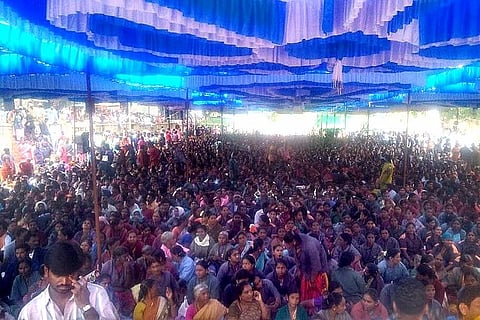

The Karnataka High Court has directed the state government to strictly implement measures to protect pourakarmikas (sanitation workers) and other labourers working outdoors during the summer months.
A single-judge bench of Justice M Nagaprasanna issued an oral order in a Writ petition filed by the All India Central Council of Trade Unions (AICCTU), which sought safeguards for pourakarmikas in the heat of the summer months. Pourakarmikas work under extreme heat conditions without access to basic relief such as water, shade, or medical aid, the Writ said.
The petition also sought all steps mandated under the Karnataka State Heat Wave Action Plan 2024-25 and the advisory of the National Programme on Climate Change & Human Health to be implemented.
The HC cited two circulars: one issued by the Disaster Management Authority dated March 20 and another issued by the Urban Development and Municipal Administration on April 2, and directed the state government to implement the measures in them.
The March 20 circular says that workers must avoid work between 12 pm and 3 pm, and must wear loose cotton clothing, caps, and scarves. It further says that heat-related health conditions such as heat cramps and heat stroke, must be monitored. It also prescribes first-aid measures to be undertaken in case of heat-induced illness.
The April 2 circular directs all Urban Local Bodies (ULBs) to identify heat-prone areas and implement worker protection protocols by adjusting work timings to avoid sun exposure during peak hours.
It emphasises on providing essential facilities such as drinking water, shaded rest areas, and using public spaces for cooling. The also circular calls for coordination among the health, labour, and disaster management departments to enforce heatwave measures and carry out community awareness campaigns on the prevention of heat-related illness.
ULBs are also instructed to monitor and ensure accountability in implementing these guidelines at local levels.
In 2024, the AICCTU had also written to the state government bodies seeking relief from the heat for sanitation workers. The letter highlighted the difficulties faced predominantly by pourakarmikas, who are mostly Dalits and from other marginalised backgrounds, across the state. Issues including the lack of rest areas and adequate drinking water facilities that expose them to heat-related health issues were also pointed out in the letter.